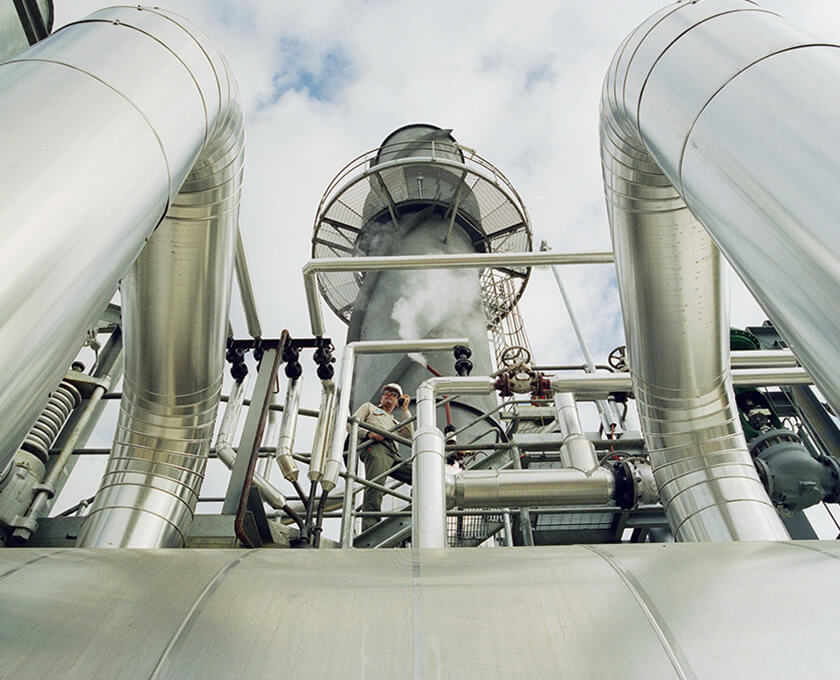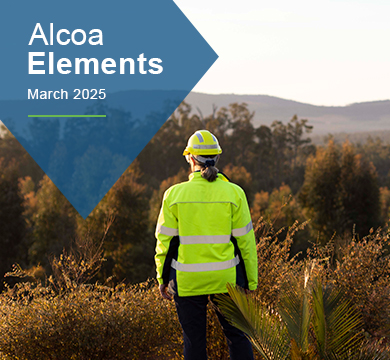March 11, 2025
Gas lights the way for energy transition

Alcoa’s alumina refineries in Western Australia are among the lowest carbon emitting in the world and that’s largely because we use gas to power them.
As one of the largest gas consumers in the State, Alcoa was a foundation customer responsible for underwriting the establishment of the Dampier to Bunbury Natural Gas Pipeline. The 1597km pipeline, built in the 1980s, delivers gas from the North West Shelf to industry, business, power generation plants and homes.
That includes cogeneration power stations at our Pinjarra and Wagerup refineries, run in conjunction with Alinta Energy, that create electricity and steam. The electricity produced helps supply the South West Interconnected System (SWIS), which provides power to the greater south west area of WA.
The steam provides the high heat required for our refining process. Alumina refining is an energy-intensive process and thanks to gas, our alumina produces about half the global average CO2 emissions.
Our ambition is to achieve net-zero CO2 emissions by 2050. To support this, we have a WA-based team working on technology including electrification and when that technology is proven and scalable, we will need alternative energy supply and storage that is as stable and reliable as gas. Until then, we must make a steady transition from where we are now to where we want to be, and gas will be vital on that journey.
Without it, the alternative could mean global demand for aluminium is addressed by producing alumina elsewhere in the world using coal as the energy source. In other words, offshoring alumina production because of a lack of gas in Australia could increase global emissions.
The 2023/24 WA domestic gas inquiry provided some sensible outcomes on improving the State’s market operations and supply.
Given most offshore gas reserves are regulated by the federal government, there is also an important Commonwealth component to more supply. Regardless of political cycles, we will continue to urge the Commonwealth and State to work together to ensure the domestic market has stable and affordable supplies of natural gas for energy generation.
A focus on streamlining regulatory approvals and bringing forward commercial gas projects to improve domestic supply will also be an essential aspect of underpinning the energy transition.
View other articles in this edition.